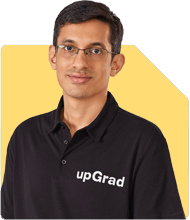Mayank Kumar | Answer |Ask -Follow
Education Expert - Answered on Aug 10, 2023

I want to know about Christ lavasa,bballb.My daughter got admission there..Is it worth sending her there.Dies it have value?? Kindly confirm
a) It is advised to check if the institution is accredited by relevant educational bodies
b) Learn about the qualifications and experience of the faculty members in the law program
c) Check the campus infrastructure, libraries, moot courtrooms, and other facilities necessary for a comprehensive legal education
d) Another critical aspect is to check the placement track record; if the program provides opportunities for internships and placements in reputed law firms, corporate legal departments, or other relevant organizations.
e) Examine the curriculum to ensure that it covers a wide range of legal subjects and provides practical exposure through moot court competitions, internships, and workshops.
f) Go through online reviews, alumni feedback, and opinions from professionals in the legal field can provide insights
g) Understand the extracurricular activities the curriculum provides - opportunities for participation in moot court competitions, seminars, workshops, or legal aid clinics
h)A strong alumni network will also be helpful in providing valuable connections
i) Evaluate the tuition fees, scholarships, and any other financial aspects to ensure they align with your budget and expectations
j) If possible visit the campus and interact with faculty members, students, and administrators to get a feel for the institution's environment and culture.
You may like to see similar questions and answers below
Mayank Kumar | Answer |Ask -Follow
Education Expert - Answered on Aug 10, 2023
Nayagam P P |10860 Answers |Ask -Follow
Career Counsellor - Answered on Jun 11, 2024
Mayank Chandel |2583 Answers |Ask -Follow
IIT-JEE, NEET-UG, SAT, CLAT, CA, CS Exam Expert - Answered on Dec 24, 2025
Mayank Chandel |2583 Answers |Ask -Follow
IIT-JEE, NEET-UG, SAT, CLAT, CA, CS Exam Expert - Answered on Dec 24, 2025
Mayank Chandel |2583 Answers |Ask -Follow
IIT-JEE, NEET-UG, SAT, CLAT, CA, CS Exam Expert - Answered on Dec 24, 2025
Dr Dipankar Dutta |1842 Answers |Ask -Follow
Tech Careers and Skill Development Expert - Answered on Dec 23, 2025
Mayank Chandel |2583 Answers |Ask -Follow
IIT-JEE, NEET-UG, SAT, CLAT, CA, CS Exam Expert - Answered on Dec 23, 2025
Mayank Chandel |2583 Answers |Ask -Follow
IIT-JEE, NEET-UG, SAT, CLAT, CA, CS Exam Expert - Answered on Dec 23, 2025
Mayank Chandel |2583 Answers |Ask -Follow
IIT-JEE, NEET-UG, SAT, CLAT, CA, CS Exam Expert - Answered on Dec 23, 2025
Mayank Chandel |2583 Answers |Ask -Follow
IIT-JEE, NEET-UG, SAT, CLAT, CA, CS Exam Expert - Answered on Dec 23, 2025
Radheshyam Zanwar |6755 Answers |Ask -Follow
MHT-CET, IIT-JEE, NEET-UG Expert - Answered on Dec 23, 2025
Radheshyam Zanwar |6755 Answers |Ask -Follow
MHT-CET, IIT-JEE, NEET-UG Expert - Answered on Dec 23, 2025





















